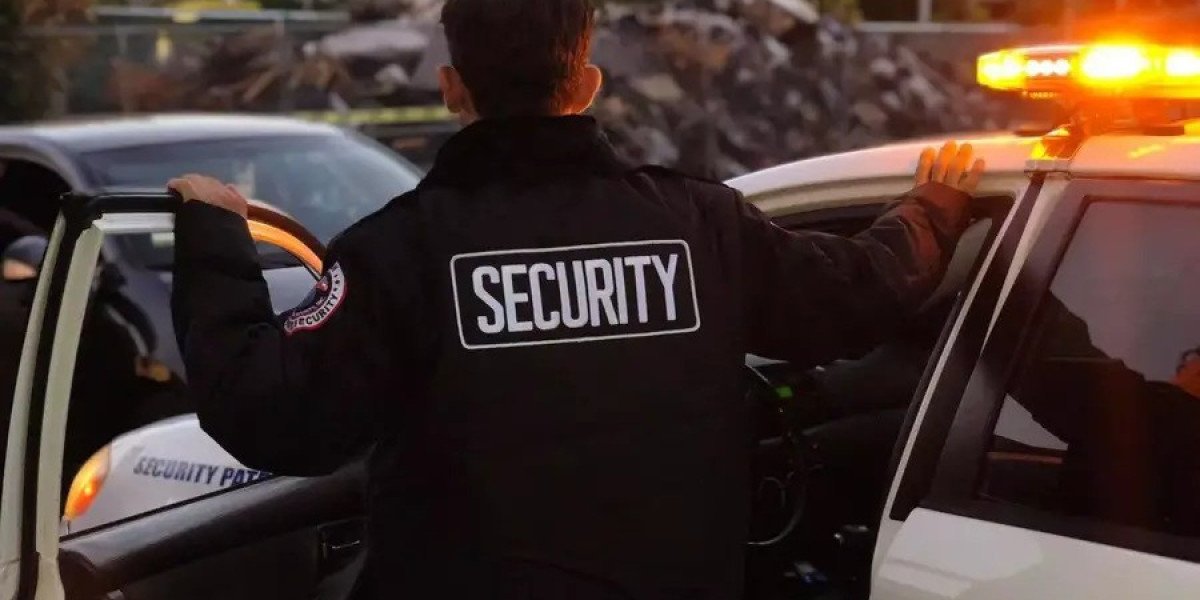Vacant property raises several risks and difficulties that, in turn, compromise their security. An empty property inspection security officer is instrumental in keeping these houses safe and secure. The most essential duties and the value an officer of this kind provides to a property owner and management company will be addressed in this document.
Understanding the Role of a Vacant Property Inspection Security Officer
A security officer guards open properties and keeps them free from damage, robbery, and any other dangers as part of vacant property security surveillance. Their work entails more than security monitoring; they carry out varied functions that are specifically designed for vacant property security.
Key Duties of a Vacant Property Inspection Security Officer
1. Conducting Routine Inspections
Regular inspection is at the heart of a security officer's work. Inspection is used to identify weaknesses, which may be:
Unlocked doors or windows
Forced entry signs
Weather or vandalism damage
Officers respond to these issues quickly to maintain the integrity and security of the property. For vacant property services in the UK, routine checks are essential for keeping up the condition of the property.
2. Monitoring and Deterring Unauthorized Access
The most basic duty of an officer is to deny access illegally. Officers do this by:
Observing entry points
Installing and checking locks, gates, and barriers
Utilizing visible signage to deter trespassing
Through their presence, they effectively reduce risks and provide a secure environment.
3. Reporting and Documenting Issues
Detailed reporting is a critical aspect of a security officer's role. Following every vacant property inspection, the officer records:
Inspection findings
Any accidents or suspicious behavior
Maintenance needs for attention
This record keeps property owners up to date and in a position to respond quickly to repairs or security upgrades when needed.
4. Implementing Preventative Measures
Preventing security problems is a valuable method of being proactive. Vacant property officers do everything they can to mitigate risks, including:
Installing security lighting
Installing CCTV cameras
Ensuring that alarm systems are operational
These preventive measures discourage would-be threats and make the overall security of the property better.
Specialised Responsibilities of Vacant Property Officers
1. Emergency Response
Vacant properties are not immune to emergencies either. Whether it is a fire, flood, or burglary, a vacant property inspection security officer can take care of it. Their prompt action can:
Reduce damage to property
Secure neighboring properties
Provide safety to anyone in the vicinity
Dynamic Security Solutions, a trusted provider of vacant property services in the UK, emphasises the importance of well-trained officers in handling such situations.
2. Maintaining Property Integrity
Aside from security, officers also guarantee the property is well-maintained. Some of their tasks can include:
Verifying leaks, damaged windows, or building damage
Informed owners of maintenance necessary
Confirming that the property meets local safety codes
3. Coordinating with Law Enforcement
Officers tend to work very closely with local police during serious incidents. Officers can write detailed reports and serve as witnesses in prosecuting security breaches.
Adapting to Modern Security Challenges
The terrain of unoccupied property protection is ever-changing, and officers must keep pace with new threats. As smart surveillance becomes a reality, officers are now combining digital technologies like remote monitoring and motion-detection alarms to strengthen security. Keeping one step ahead of new threats, they can ensure that unoccupied properties are secure from contemporary risks such as high-tech break-in methods.
Enhancing Security Through Proactive Measures
Apart from conventional security measures, vacant property officers emphasise proactive risk reduction. This involves performing risk assessments, coordinating with maintenance teams, and putting in place energy-efficient security measures. Through an integration of watchfulness with prevention measures, such officers offer overall protection, which ensures that vacant properties are not liabilities but instead remain assets.
Why Are Vacant Property Officers Essential?
Protecting Investments
Empty houses are a significant investment, and losing them can mean a loss of funds. An officer's watchfulness guarantees that:
Property values are preserved
Owners do not incur expensive repairs
The threat of liability claims is minimized
Ensuring Community Safety
Empty houses with no security are easy hideouts for criminals. When such problems do occur, officers are on hand to guarantee the safety of the community.
Offering Peace of Mind
With a security professional watching over vacant property, owners and managers are assured that nothing goes unreported. Peace of mind is priceless, especially on high-value or isolated assets.
The Future of Vacant Property Security
With the growing need for vacant property protection, the security officer's role is evolving. Incorporating advanced surveillance equipment, improving training programmes, and developing alliances with local authorities are a few of the ways the profession is evolving. Even with technological progress, the human factor cannot be replaced, and the knowledge and discretion of a vacant property inspection security officer cannot be surpassed.
Conclusion
Beyond safeguarding empty properties, the work of a vacant property inspection security officer also encompasses a wide scope. They cover as wide-scale checks as possible to notify people in case of an emergency, among other activities. All these efforts give property owners no reason to be concerned about their investment in UK vacant property services or similar facilities.








